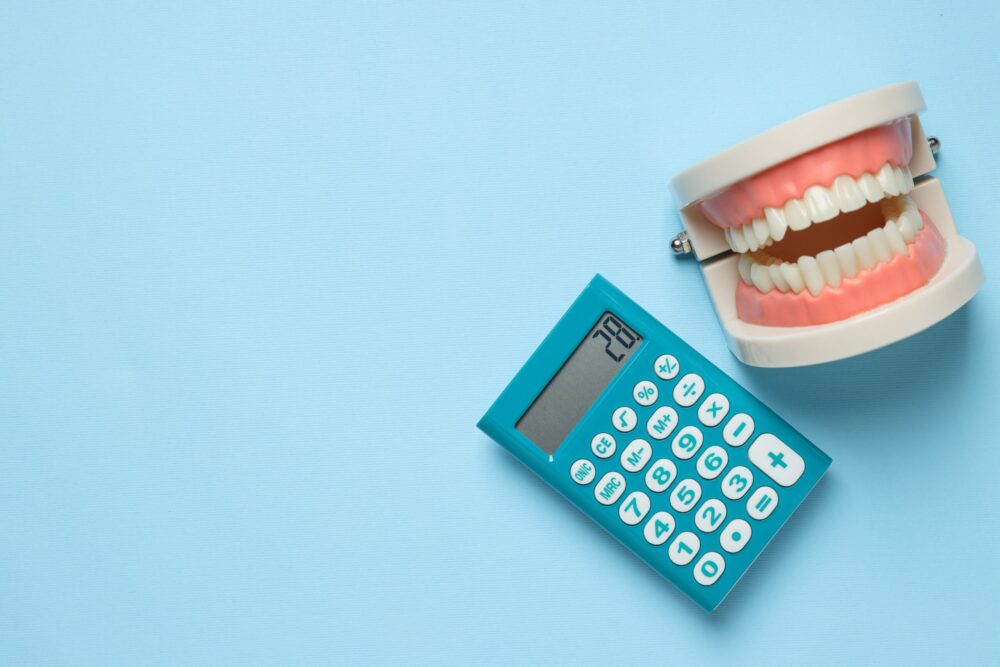According to the Academy of General Dentistry, an estimated 40 million Americans have sensitive teeth. That means that over 10% of the U.S. population suffer from teeth sensitive to cold and hot and other triggers, all possibly related to dental enamel erosion. If you’ve ever experienced that zinger effect from a sensitive tooth, then you know it’s no treat. For this reason, it’s essential to understand why your teeth are sensitive, the signs of tooth sensitivity, and what you can do about it.
Causes of Sensitive Teeth
Sensitive teeth are a dental malady that can be common and uncomfortable for many people. Understanding the causes behind this condition is essential in managing and preventing it. Exposure of the dentin typically causes sensitive teeth, the layer of tissue underneath the enamel that contains nerves. The following factors can contribute to this:
- Brushing too hard or using a hard-bristled toothbrush
- Teeth grinding or clenching
- Tooth decay, worn fillings, or gum disease
- Acidic foods and drinks
- Age-related wear and tear
- Receding gums
- Teeth whitening treatments
- Type of toothpaste you use
- Certain medical conditions or medications
By being aware of these potential causes, you can take steps to prevent or manage sensitive teeth and improve your overall dental health. Read on to better understand what to do if you have sensitive teeth and how you can manage the resulting tooth pain.
What can you do about your tooth sensitivity?
If you are experiencing tooth sensitivity, you don’t have to keep fighting off those zingers. There are some tried-and-true strategies that you can take to make teeth less sensitive to cold and hot and help manage that tooth pain. One effective strategy is to avoid consuming highly acidic foods and drinks, which can erode your tooth enamel and make your teeth more sensitive. Additionally, using a fluoridated toothpaste and mouthwash, or getting a fluoride treatment at your dentist’s office can help to strengthen your tooth enamel and reduce sensitivity over time. But there are some other tricks too. Check them out below.
Talk to your dentist.
The most important thing you can do if you have sensitive teeth is to inform your dentist. Your dentist can determine the cause of your sensitivity and recommend a treatment plan to alleviate your discomfort. They can also perform a dental evaluation to check for any underlying dental problems contributing to your sensitivity.
Use a toothpaste designed to help with tooth sensitivity.
Toothpaste, like Sensodyne, helps relieve sensitivity by blocking the channels in your teeth that lead to the nerves. These types of toothpaste contain ingredients like potassium nitrate or stannous fluoride, which can help reduce the pain associated with sensitivity. Sensodyne is a popular brand of toothpaste designed for sensitive teeth, but many other options are available.
Ask your dentist about a custom-made nightguard.
You may have bruxism if you clench or grind your teeth during the day, especially at night. Unfortunately, teeth aren’t designed for this type of action, and bruxism can wear away the enamel on your teeth, leading to uncomfortable sensitivity. If you think you clench or grind your teeth when you sleep, ask your dentist about a custom-made nightguard to prevent grinding. These oral appliances are removable and fit over your teeth to provide a barrier between your upper and lower teeth while you sleep. This can help to prevent wear and tear on your teeth and reduce sensitivity.
Use a soft-bristled toothbrush.
Many people take their aggression out on their teeth when they brush. And, more so, it’s not uncommon for people to think that the harder they brush, the cleaner their teeth will be. But this is not the case. It’s best to brush your teeth twice a day with a soft-bristled toothbrush to help to prevent enamel erosion and reduce sensitivity. Using an ultra-soft brush can be even better if you have sensitive teeth. Daily flossing can help remove food particles and plaque from between your teeth, which can help prevent tooth decay and sensitivity.
Knowing the cause of your tooth sensitivity is half the battle.
If you experience zingers in your mouth when your teeth are exposed to cold or hot foods and beverages, or feel pain when biting down, it’s best to inform your dentist in Hampton and Griffin, GA. While both are typically signs of tooth sensitivity, only your dentist can let you know what might be causing it and can rule out other issues, such as tooth decay. So if you think you have sensitive teeth, now is the time to request an appointment with Allred Family Dentistry. During your appointment, we’ll conduct a professional dental cleaning and will assess what’s going on in your mouth. Then, we can work together on a treatment plan to help eliminate that tooth discomfort and keep those zingers to a minimum.





